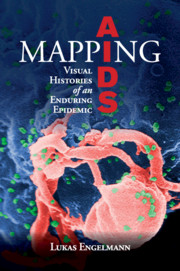Crossref Citations
This Book has been
cited by the following publications. This list is generated based on data provided by Crossref.
Lee, Francis
Bier, Jess
Christensen, Jeffrey
Engelmann, Lukas
Helgesson, Claes-Fredrik
and
Williams, Robin
2019.
Algorithms as folding: Reframing the analytical focus.
Big Data & Society,
Vol. 6,
Issue. 2,
p.
205395171986381.
2019.
Isis Current Bibliography of the History of Science and Its Cultural Influences 2019.
Isis,
Vol. 110,
Issue. S1,
p.
21.
Kanazawa, Reiko
2020.
Disease in a Debt Crisis: Financing Global Health, Development and AIDS between WHO and World Bank, 1978–87.
Medical History,
Vol. 64,
Issue. 3,
p.
303.
Witkowski, Kaila
Vertovec, John
Da Silva, Natália Marques
Awadzi, Raymond K.
Yamini, Farah
Varas-Díaz, Nelson
Padilla, Mark
Rodríguez-Madera, Sheilla L.
Matiz Reyes, Armando
and
Marr, Matthew
2021.
Miami in Transformation during the COVID-19 Pandemic: A Participatory Visual Culture Analysis.
eTropic: electronic journal of studies in the Tropics,
Vol. 20,
Issue. 1,
p.
157.
Race, Kane
2021.
Remaking HIV Prevention in the 21st Century.
Vol. 5,
Issue. ,
p.
91.
Hodson, Dermot
2021.
The visual politics and policy of Donald Trump.
Policy Studies,
Vol. 42,
Issue. 5-6,
p.
509.
Lancaster, Kari
and
Rhodes, Tim
2022.
Futuring a world without disease: visualising the elimination of hepatitis C.
Critical Public Health,
Vol. 32,
Issue. 2,
p.
153.
Kuo, Wen-Hua
2022.
Editor’s Note.
East Asian Science, Technology and Society: An International Journal,
Vol. 16,
Issue. 2,
p.
153.
Hanley, Anne
2022.
Histories of ‘a loathsome disease’: Sexual health in modern Britain.
History Compass,
Vol. 20,
Issue. 3,
Por, Heong-Hong
2022.
Visualization and Pandemic Governance in Covid-19 Hit Malaysia.
East Asian Science, Technology and Society: An International Journal,
Vol. 16,
Issue. 2,
p.
237.
Tan, Xuanxuan
2022.
Hope and trust: Public attitudes toward mass COVID-19 testing programs in Guangzhou, China.
Frontiers in Psychology,
Vol. 13,
Issue. ,
Steiner, Katharina
and
Engelmann, Lukas
2023.
Circulation as a Visual Practice**.
Berichte zur Wissenschaftsgeschichte,
Vol. 46,
Issue. 2-3,
p.
143.
Bock von Wülfingen, Bettina
2023.
Circulation of Coronavirus Images: Helping Social Distancing?.
Berichte zur Wissenschaftsgeschichte,
Vol. 46,
Issue. 2-3,
p.
259.
Kanazawa, Reiko
2023.
Pandemic Responses and the Strengths of Health Systems: A Review of Global AIDS Historiography in Light of COVID-19.
Isis,
Vol. 114,
Issue. S1,
p.
S162.
Canavan, Barbara
2023.
Historical Literature Related to Zoonoses and Pandemics.
Isis,
Vol. 114,
Issue. S1,
p.
S104.
Engelmann, Lukas
2023.
Coinfection, Comorbidity, and Syndemics: On the Edges of Epidemic Historiography.
Isis,
Vol. 114,
Issue. S1,
p.
S71.





